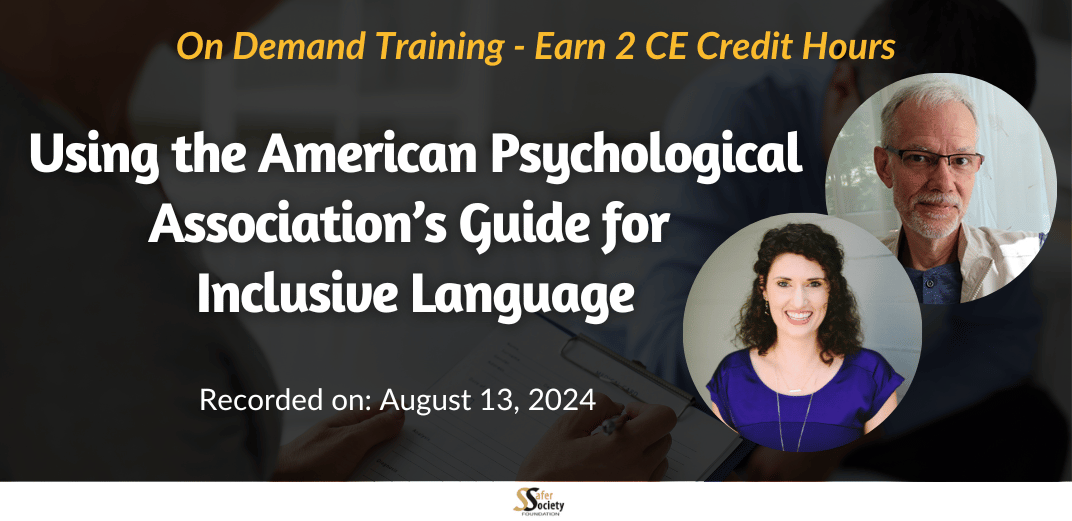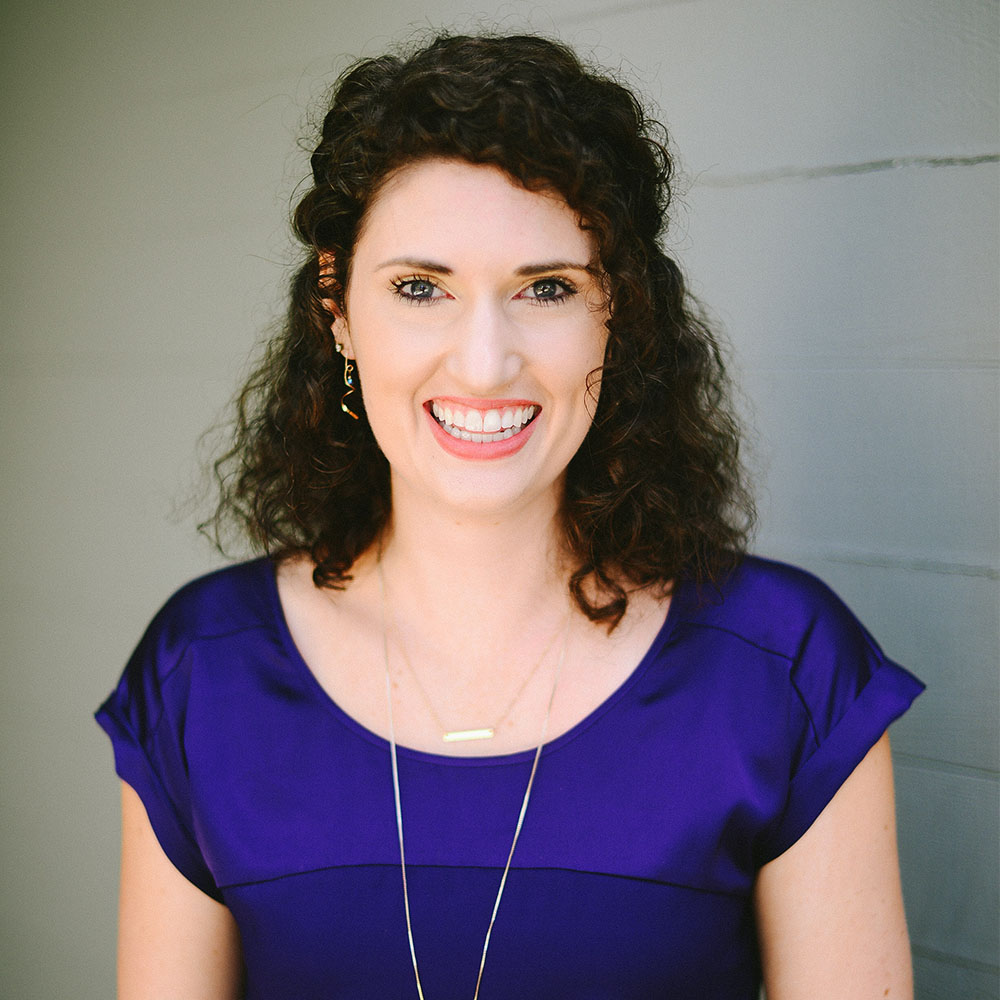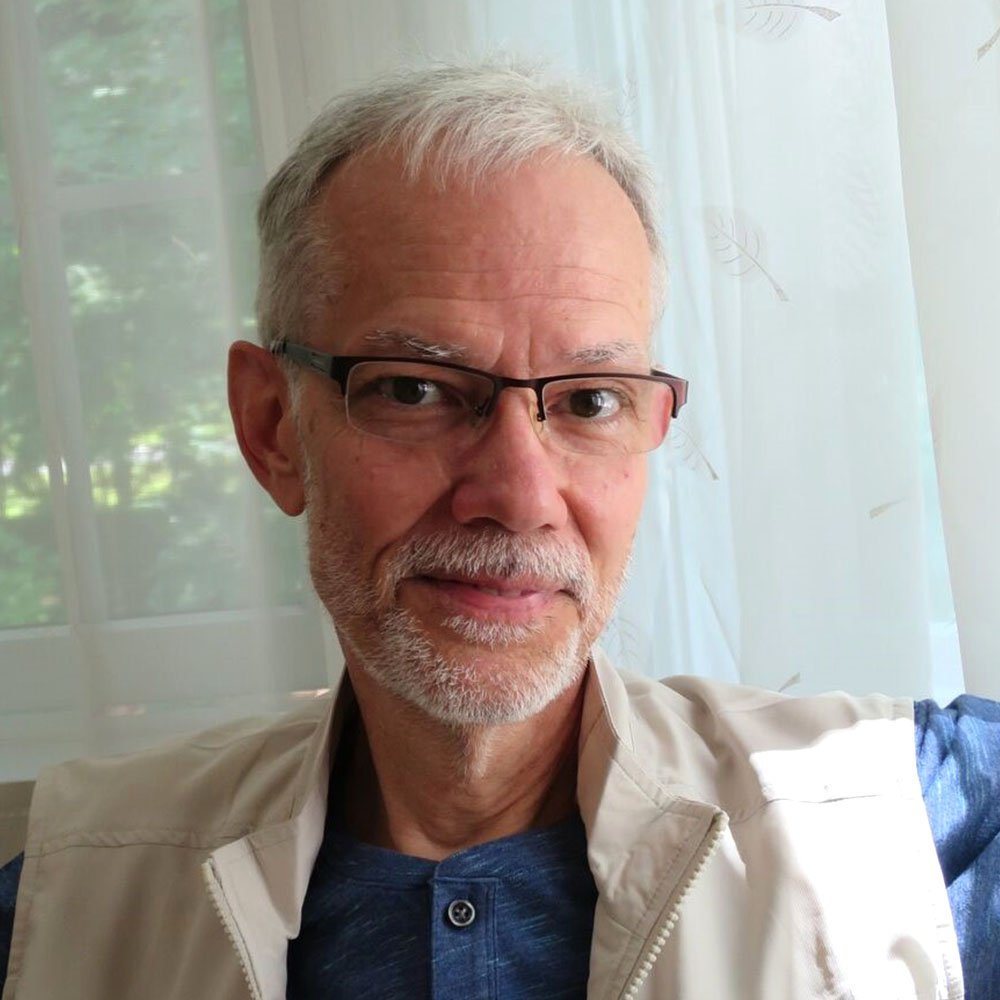
Using the American Psychological Association’s Guide for Inclusive Language
Already purchased an On Demand training?
Click here to access your Safer Society On-Demand Training Center account.
In October 2023, the American Psychological Association (APA) released the second edition of its Inclusive Language Guide. In support of cultural inclusivity, it outlines the differences between person-first and identity-first language and challenges all professionals to consider how they use respectful and culturally sensitive language with their clients and in communications about their clients.
Person-first and identity-first language are important because they can have a significant impact on how individuals are perceived and treated. For example, the Inclusive Language Guide recommends avoiding the use of stigmatizing language when referring to individuals involved in the criminal justice system. Instead of using the words “criminal” or “offender,” we should instead use more neutral language. This can include “person with a history of involvement in the criminal justice system.” The recommendations in the guide aim to promote inclusivity and respect for all individuals, regardless of their history.
Key topics include:
- Person-first language and its place in reports and client communications
- Culturally responsive terms and phrases
- Why the APA’s recommendations matter
In this training, Molly Shepard and David Prescott review the APA recommendations and discuss their implications for practice in assessment and treatment. The training offers specific recommendations for criminal justice and related settings.
1) Describe the APA report on inclusive language.
2) Respond to the evolution of language in continued support of cultural diversity.
3) Explain the difference between person-first and identity-first language.
4) Construct reports and treatment plans that adhere to the APA recommendations.
Audience
This training is for professionals in psychology, mental health, criminal justice, and related fields. This includes psychologists, social workers, and counselors. Professionals who conduct assessments and treatment in forensic will also benefit from this training.
Content Level
Disclosure
Continuing Education Approval
American Psychological Association (APA)
Safer Society Foundation, Inc. is approved by the American Psychological Association (APA) to sponsor continuing education for psychologists. Safer Society Foundation, Inc. maintains responsibility for this program and its content.
Who's Presenting

Molly Shepard, PhD
Molly Shepard is a licensed psychologist providing sexual offense-specific treatment and assessment services in various capacities. She graduated from Palo Alto University’s Clinical Psychology PhD program in 2020. She holds Oregon certifications as a Clinical Sexual Offense Therapist (CCSOT) and a Forensic Evaluator. She primarily works within the Oregon State Hospital’s Sexual Offending Treatment Program wherein she also supervises predoctoral psychology interns and clinicians seeking CCSOT. She contracts with Western Clinical & Forensic Services, conducting sexual risk, diagnostic, and forensic evaluations. She serves as an at large board member of Oregon’s ATSA chapter (OATSA). Her primarily clinical and research interests involve sexual offending-specific treatment, assessment, and risk mitigation; supervision and training; cultural and language inclusivity; and kink, queer, and polyamorous identities.

David Prescott, LICSW, ATSA-F
A mental health practitioner of 40 years, David Prescott is the Director of the Safer Society Continuing Education Center. He is the author and editor of 25 books in the areas of understanding and improving services to at-risk clients. He is best known for his work in the areas of understanding, assessing, and treating sexual violence and trauma. Mr. Prescott is the recipient of the 2014 Distinguished Contribution award from the Association for the Treatment and Prevention of Sexual Abuse (ATSA), the 2018 recipient of the National Adolescent Perpetration Network’s C. Henry Kempe Lifetime Achievement award, and the 2022 recipient of the Fay Honey Knopp Award from the New York State Alliance for the Prevention of Sexual Abuse and New York State ATSA. He also served as ATSA President in 2008-09. Mr. Prescott currently trains and lectures around the world. His published work has been translated into Japanese, Korean, German, French, Polish, and Southern Tutchone. He has served on the editorial boards of four scholarly journals.
